It would appear that Lufthansa may be looking at swapping some of its existing plane orders for smaller planes. What could that look like?
In this post:
Lufthansa looking to swap for smaller planes
During a webinar this week, Lufthansa CEO Carsten Spohr made some interesting comments about the German carrier’s fleet plans. Specifically, Lufthansa is allegedly in negotiations with both Airbus and Boeing about existing orders, as Lufthansa is looking for smaller planes. As Spohr explained:
“We are putting many four-engined long-range aircraft out of the fleet and this creates a certain need for smaller long-range aircraft. These are very dynamic discussions.”
Spohr stated that both Airbus and Boeing were showing flexibility in discussions, which matches what we’ve otherwise seen in the industry, as we’ve seen several airlines announce order changes.
Spohr has a very pessimistic outlook on the future of travel and doubts whether business travel in the US or Europe will ever return to pre-pandemic levels. Lufthansa has already announced that its retiring all of its A380s and A340-600s.
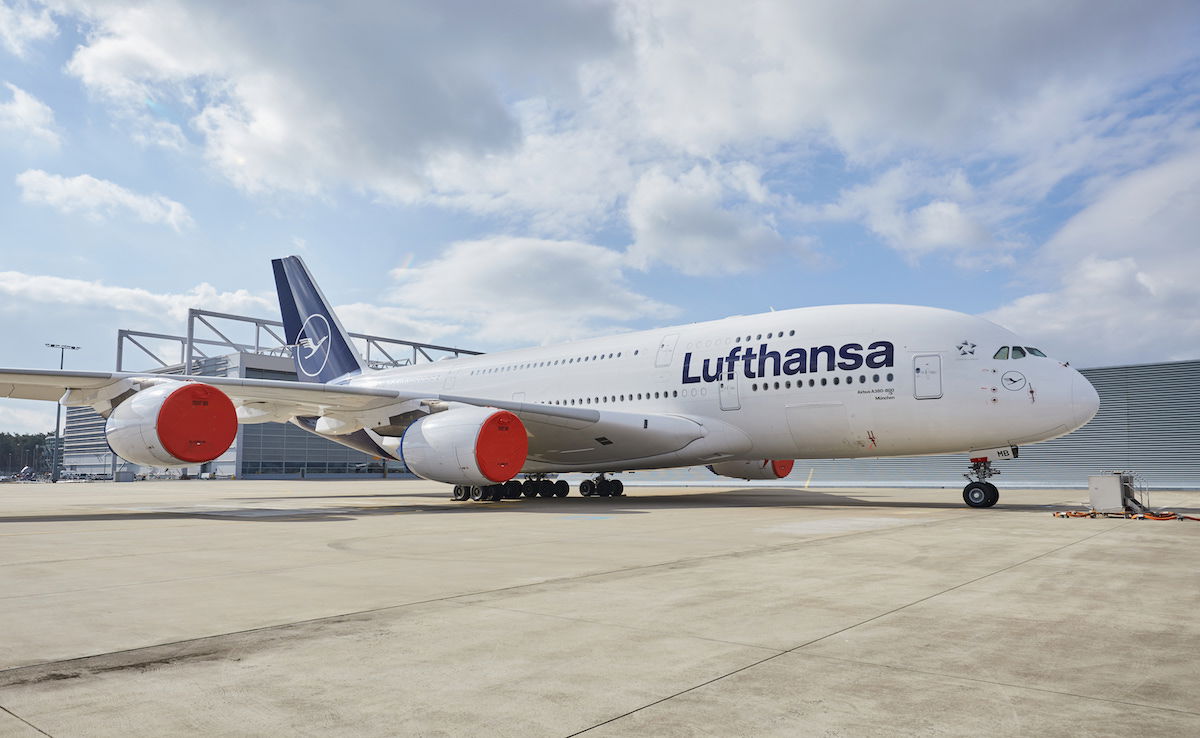 Lufthansa is retiring its entire Airbus A380 fleet
Lufthansa is retiring its entire Airbus A380 fleet
What kind of order swaps should we expect?
The above begs the question of what kind of order swaps we can expect from Lufthansa. It seems that the discussions about potential order swaps are specific to long-haul aircraft, based on Spohr’s comments. Lufthansa’s current long-haul orders include the following:
- 20 Boeing 787-9s
- 20 Boeing 777-9s
- 41 Airbus A350-900s (the airline has already taken delivery of nearly half of these)
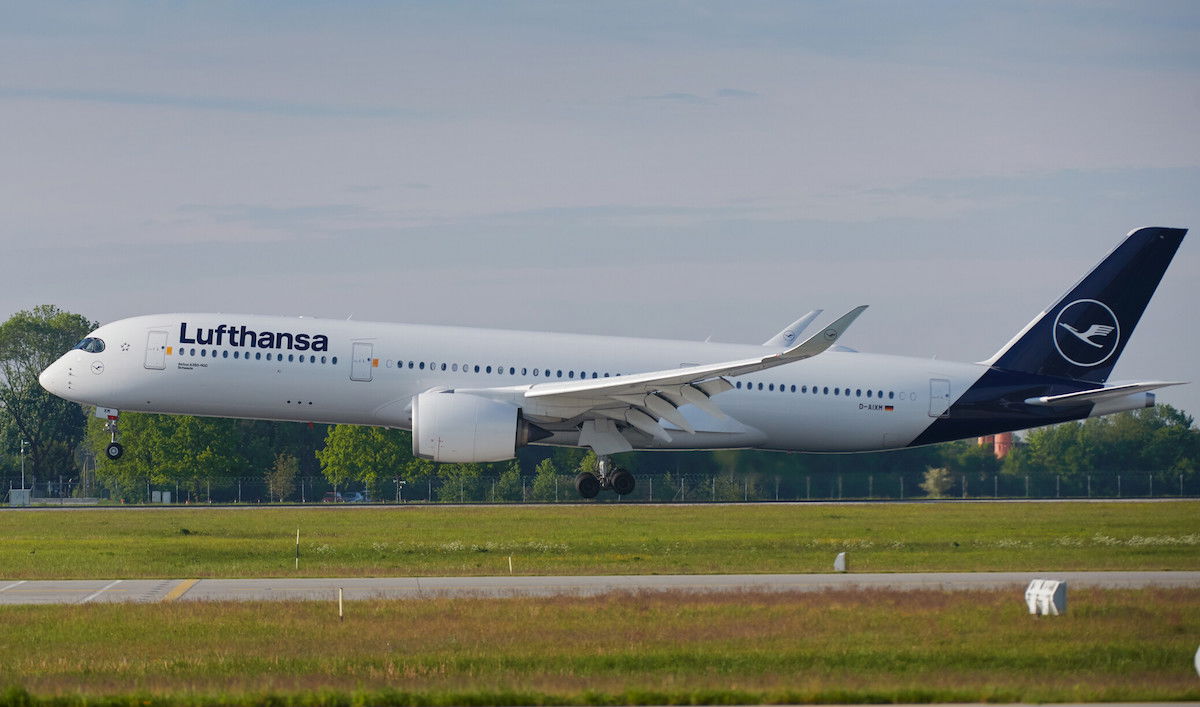 The A350 will eventually be the backbone of Lufthansa’s long haul fleet
The A350 will eventually be the backbone of Lufthansa’s long haul fleet
The types of aircraft that Lufthansa can swap to here is pretty limited, so there’s not too much guessing required:
- With Boeing, could Lufthansa swap its 777-9s for either more 787-9s or maybe even 787-8s?
- With Airbus, could Lufthansa swap its A350-900s for A330-800neos, A330-900neos, or A321XLRs?
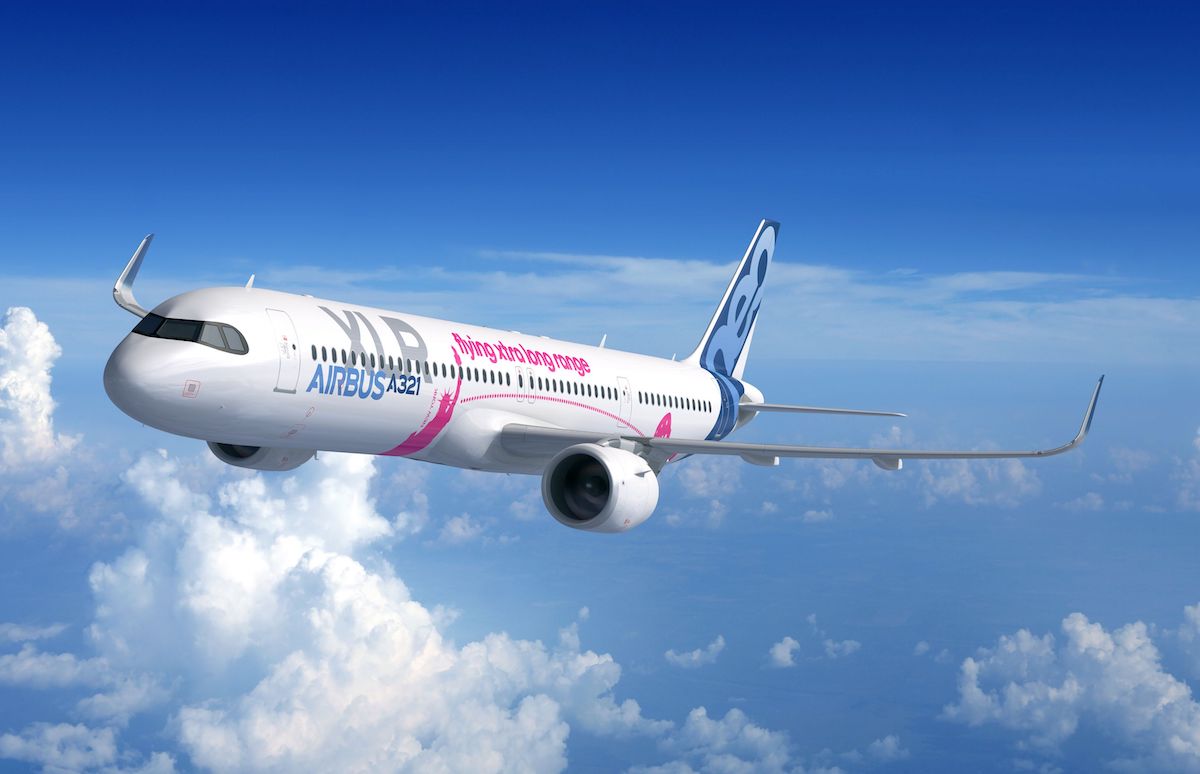 Could Lufthansa be interested in the A321XLR?
Could Lufthansa be interested in the A321XLR?
My general take is as follows:
- It seems most likely that Lufthansa may want to some or all of its 777-9s for 787-9s; Boeing has already lost over a third of its 777X orders, with airlines largely swapping to smaller planes
- While Lufthansa’s CEO has spoken out against the A321XLR, it sure seems to me like this is a plane that the airline may be considering; I don’t see Lufthansa ordering A330-800neos or A330-900neos, personally
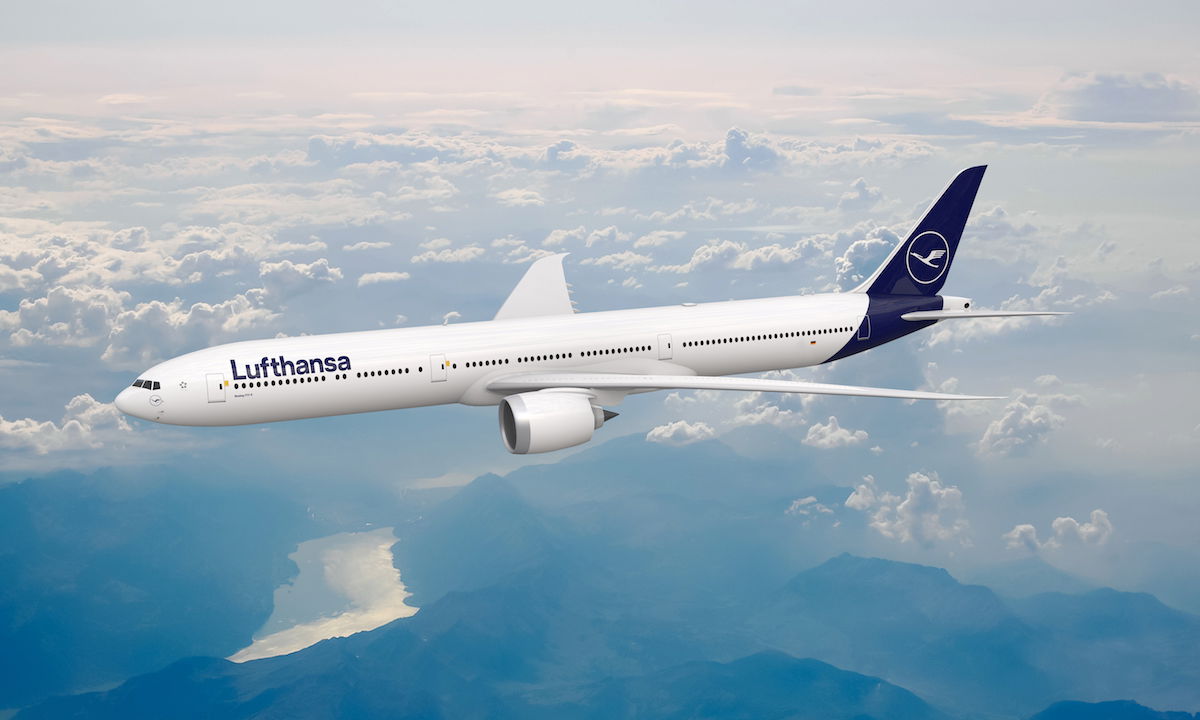 Could Lufthansa cancel its Boeing 777-9 order altogether?
Could Lufthansa cancel its Boeing 777-9 order altogether?
Bottom line
Lufthansa is in discussions with both Airbus and Boeing about adjusting its existing long-haul aircraft orders, as the airline wants smaller long-haul aircraft. To me, this suggests that Lufthansa may be looking to swap 777-9s for 787-9s, and swap A350-900s for A321XLRs.
Only time will tell how this situation evolves, though airlines are certainly looking for smaller and smaller aircraft to meet their long haul needs.
What do you make of Lufthansa’s plans for smaller long-haul aircraft?
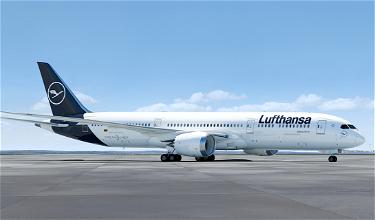

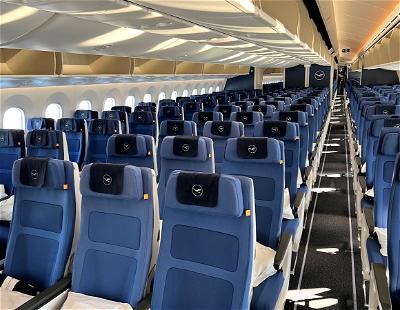
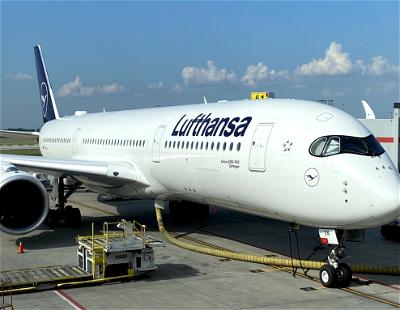
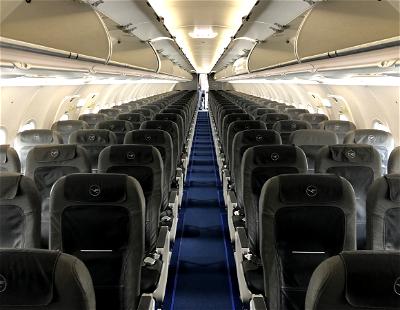
@TLS
How very true. It doesn't matter what aircraft LH flies, it doesn't matter if it's short or long haul, it doesn't matter what class you fly. You just have to accept the rock-solid truth that the hard product and service will be very 'meh'. Life is too short and options are too plentiful to be content with LH mediocrity.
@Samo Have you never worked at a big company? There is such a thing as inertia.
If Zoom meetings worked so well, businesses would switch to them long before the pandemic. Remember, many have tried it - but pretty much everyone concluded they need the travel. If videoconferencing was so efficient, those who did it would gain a major advantage against their competition. This did not happen.
Face to face meetings are good for business. Some companies may hope they won't need to do them anymore, but once their competition restarts...
If Zoom meetings worked so well, businesses would switch to them long before the pandemic. Remember, many have tried it - but pretty much everyone concluded they need the travel. If videoconferencing was so efficient, those who did it would gain a major advantage against their competition. This did not happen.
Face to face meetings are good for business. Some companies may hope they won't need to do them anymore, but once their competition restarts business travel, they will need to do it to.
Flying an XLR across any pond is just not an option.
IT has changed dramatically in the travel department. A lot of the travel was to client sites as a simple security precaution they wouldn't allow remote access, that has changed dramatically.
From a customer standpoint the single aisle plane would be horrible. Lack of washrooms per passenger, flught attendant service blocking the aisles would be uncomfortable. I also feel smaller planes are more susceptible to turbulence especially over nort Atlantic or Pacific crossings. Sure a single aisle plane is for a 5-6 hour flight but no thanks on a 9-10 hour trip.
@Jordan I highly doubt that business travel will return to pre-pandemic levels on a global level. Many businesses have realized that some tasks that may have previously been deemed to be necessary to be executed in person could be done just as effectively online, while sparing travel costs. I myself only traveled when it was absolutely essential pre-pandemic, but I know for a fact many of my colleges went on trips across the world that...
@Jordan I highly doubt that business travel will return to pre-pandemic levels on a global level. Many businesses have realized that some tasks that may have previously been deemed to be necessary to be executed in person could be done just as effectively online, while sparing travel costs. I myself only traveled when it was absolutely essential pre-pandemic, but I know for a fact many of my colleges went on trips across the world that may have easily cost the company north 15k€ (when accounting for everything), when they could've dealt with it remotely just as effectively. In my opinion, most companies (yes, even large TNCs) will be more conscious of their business-travel expenditure from now onwards and I may be mistaken, but I don't see any possible "boom factor" that could propel business-travel to those 2019 levels, especially as teleconferencing technology is evolving consistently.
Hey Lucky, this might be a matter of interpration, but have you considered the possibility of the CEO's statement is actually about new orders to replace current planes instead of a rearrengement of current orders? Or maybe a combination os these situations?
Given LH's current quad-engine fleet is composed of A380s, A340s and 747s, Spohr might have saind that the airline is negotiating new orders to replace these aircraft with smaller counterparts.
In that case,...
Hey Lucky, this might be a matter of interpration, but have you considered the possibility of the CEO's statement is actually about new orders to replace current planes instead of a rearrengement of current orders? Or maybe a combination os these situations?
Given LH's current quad-engine fleet is composed of A380s, A340s and 747s, Spohr might have saind that the airline is negotiating new orders to replace these aircraft with smaller counterparts.
In that case, A380s and 747 could be replace either by 777Xs (in case of the A380), A350s and 787s, while the A340s might be replace either with A330neos or A321XLRs.
I think replacing the remaining A350s with A321s would be a step too far in reducing capacity to meet the demand, given that the drop would be enourmous and Lufthansa would need new planes more quicly once demand recovers to pre-2020 levels. Although, replaceing 777Xs with smaller dreamliners or 350s makes a lot more sense.
What will happen to their Skytrax 5 Rating?
Karsten Spohr is not the brightest, see the business class seat dilemma
The new Lufthansa biz seat was developed specifically for the 777-9. Now that they change to 787, they have to start from scratch and develop a new seat. For Lufthansa, that will typically take about 15 years.
@ Jordan
Based on what I see and hear Business travel will shrink long term. Firms are more cognizant of risks involved in travel and do not want to be responsible. This might not involve an evolution to zero but the curtailment will be near permanent. Travel will continue but if business pays the way, yields will drop. big time.
There seems to be some confusion about the number of Airbus A350-900s ordered by Lufthansa, with 41 appearing (alas, without citing the data source used in arriving at that quantity) in a report by Bloomberg News yesterday (Mon, Feb 15).
As Bloomberg News is typically reliable, I also cited 41 without independently verifying/fact checking in the introductory comments posted along with links to the article on my LinkedIn “Posts” - only to discover last night...
There seems to be some confusion about the number of Airbus A350-900s ordered by Lufthansa, with 41 appearing (alas, without citing the data source used in arriving at that quantity) in a report by Bloomberg News yesterday (Mon, Feb 15).
As Bloomberg News is typically reliable, I also cited 41 without independently verifying/fact checking in the introductory comments posted along with links to the article on my LinkedIn “Posts” - only to discover last night while reading others’ posts covering Lufthansa’s CEO, Carsten Spohr’s comments, that there was a discrepancy between the 41 A350-900s ordered in the Bloomberg News report (and alas, the introductory comments included I wrote) and that seen elsewhere.
So, last night (and again today before adding this reader comment just to be doubly sure!), I did what I should’ve done originally upon seeing unsourced/uncredited data: fact checked (since, after all, there was a discrepancy of data that warranted further investigation!).
And the results are as follows:
1) Lufthansa originally ordered 25 A350-900s in September, 2013;
2) In 2019, Lufthansa ordered another 20 A350-900s, for a total of 45 at that time;
3) Early last year (~Jan 2020), as reported Feb 6 by Flightglobal, two (2) A350-900s were removed from Lufthansa’s order book, for a total of 43 ordered;
4) The 1st A350-900 was delivered to Lufthansa in 2016;
5) As of 12/31/20, Lufthansa received 17 of its 43 A350s, with 26 remaining subject to further changes, if any.
6) How Bloomberg arrived at its number, 41, for A350-900s at Lufthansa, which btw, it failed to provide a breakdown of units delivered vs. remaining orders, is unclear since (and as previously noted) the article fails to provide any source for the data provided regarding the aircraft discussed in the article.
Yes, last week (Feb 11) Bloomberg News announced “about 90 editorial employees, including Senior Editors based in Europe” (per FT/Financial Times report) were furloughed...which MAY (as in just a guess!) explain the lapse in Bloomberg News’ usually reliable research...but still, unsourced/uncredited data?!?!
Oh, well, I fell for it, too...
The primary sources used for researching included:
Flightglobal (as noted); Simple Flying (which said its LH fleet data was derived from Planespotters (dot net); Wikipedia; Airbus
Lufthansa really is a meh airline. The A340 won't be missed by me at least. When it comes to travel, I'm so happy I live in Asia, where the airlines are actually trying to provide some kind of service, be it on the ground or in the air.
I for one can't wait for the pandemic to be over, as I have a serious travel itch right now.
Crazy. Crazy. Crazy.
What on earth do they think is going to happen once we get allowed to travel?
Will people be more inclined to stick with staycations, because we have to do it now?
Likewise this fixation with ditching F and scalping J.
If they fit their A321XLR with the same seats they do on their short-haul A320 family then forget it
I think from a European perspective, air travel will eventually return to it's pre-pandemic levels, but that was likely an all-time peak. With many European governments expecting permanently decreased short haul flying in return for bailout cash, this becomes even more likely. Look at the cancellation of CDG T4, for example. We won't see much growth above 2019 levels within Europe.
Asia and Africa are entirely different matters. I suspect we'll see a shift...
I think from a European perspective, air travel will eventually return to it's pre-pandemic levels, but that was likely an all-time peak. With many European governments expecting permanently decreased short haul flying in return for bailout cash, this becomes even more likely. Look at the cancellation of CDG T4, for example. We won't see much growth above 2019 levels within Europe.
Asia and Africa are entirely different matters. I suspect we'll see a shift to needing more 777-9 / 747-8 aircraft on those continents by 2030 simply to meet demand of the growing middle classes in rapidly developing nations.
North America and Australasia will see sustained but slower growth, as even the most grandiose rail projects will never adequately or efficiently address such vast nations.
There's the question of the Zoom effect on business travel, but there's also a lot of countries questioning if we had too much freedom of international movement until now. As we become a globalized culture, more diseases can spread across the globe rapidly. Will there be less visa-free travel post COVID-19? Will we particularly see countries that are less dependent on tourism decide they want to know more about the people entering them / require more vaccines etc.?
Just my two cents. It's all hard to predict.
I’m in total agreement with @Gene on this one. Their J product on the A350-900 is pathetic, about 20 years behind the times. They should spend money on refitting their existing aircraft while they rethink their future aircraft purchases.
As for business travel returning to pre-pandemic levels, I’ve been through the post 9/11 downturn in travel and it recovered fully. Once the economy returns to pre-pandemic health, the traffic should return if history is any...
I’m in total agreement with @Gene on this one. Their J product on the A350-900 is pathetic, about 20 years behind the times. They should spend money on refitting their existing aircraft while they rethink their future aircraft purchases.
As for business travel returning to pre-pandemic levels, I’ve been through the post 9/11 downturn in travel and it recovered fully. Once the economy returns to pre-pandemic health, the traffic should return if history is any indication.
"doubts whether business travel in the US or Europe will ever return to pre-pandemic levels" -
Doubts it will ever return??
This comment would indicate a huge percentage of the business traveling public died. Zoom and co might cut out the occasional face to face, but this truly opens up the floor to some bigger questions about humanity, and what's coming next...
It's one thing to say, may not recover for 2-5 years, but this statement means so much more.
@gene, you're right. LH do need to up the game on the premium seats, which aren't very private and feel very mediocre, even if the softer service levels are strong in the offering. No surprise that LH want smaller planes for long haul. Business travel will not recover to the levels it was at before the pandemic. The A380s, A340-600s, and potentially the 777-X may no longer be the best fit whereas the A350, 787 models are.
Long haul means different things for different airlines. For European airlines the focus is likely to be on North America and similar distances to other continents. For the Gulf carriers, their business model is being able to fly non-stop to everywhere on the globe, and using their location as a hub to leverage that. The calculation will be different in the Asia-Pacific where 12 hour flights are common. I can see a north Atlantic focus...
Long haul means different things for different airlines. For European airlines the focus is likely to be on North America and similar distances to other continents. For the Gulf carriers, their business model is being able to fly non-stop to everywhere on the globe, and using their location as a hub to leverage that. The calculation will be different in the Asia-Pacific where 12 hour flights are common. I can see a north Atlantic focus as generating a different long haul model to that which applies to other regions.
Alan Joyce had an interesting interview a few days back on Eurocontrol where he said that for Qantas, Project Sunrise for ultra-long haul was still in their business plan. He also foresaw a strong case for their A380s on routes like LAX and LHR.
It is interesting that smaller aircraft are back in fashion. It seems that airline strategy is cyclical over the years; for a long time bigger was better with maximum capacity between large markets. Before that, point to point ruled the skies. Now, we're back to smaller aircraft flying point to point again. Unfortunately for Boeing (and Airbus too), that means that their signature new products are too large for most customers' needs. Basically, Boeing's only...
It is interesting that smaller aircraft are back in fashion. It seems that airline strategy is cyclical over the years; for a long time bigger was better with maximum capacity between large markets. Before that, point to point ruled the skies. Now, we're back to smaller aircraft flying point to point again. Unfortunately for Boeing (and Airbus too), that means that their signature new products are too large for most customers' needs. Basically, Boeing's only real hit product at this point is the 787 series (the MAX is what airlines buy who are either too invested in Boeing or can't afford Airbus). Boeing could have cleaned up with the NMA, but no - they chose to go cheap and dirty with the 1960's 737. As for Airbus, they do have the A220 series and the A320 series, each of which offer compelling products for short to mid range flying. The A321-XLR probably would solve a lot of problems for Lufthansa, if only they were open to the idea.
Now, I would also think that the A330-800 would be a compelling product in this environment, but apparently the economics only work for certain uses.
@ Ben -- Unless they want to lose all premium business other than their captive German market, they will need a new J seat in these aircraft (I assume F will not be included).